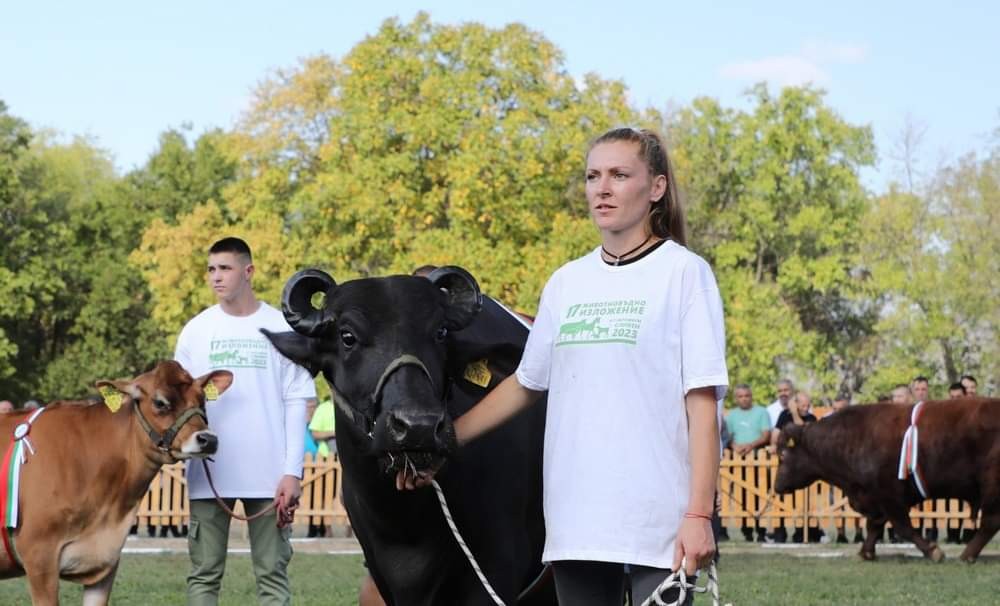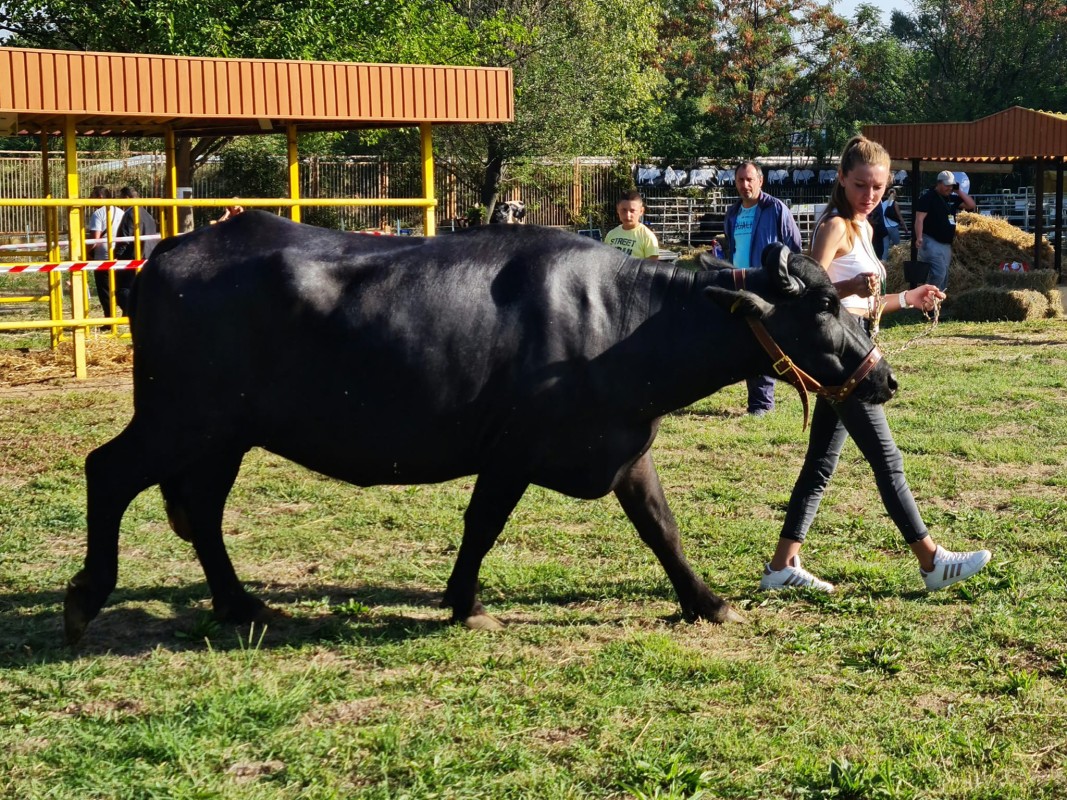 4
4
She is beautiful, young and educated and has the qualities for a successful career on the catwalk or in the advertising business! But she chose to raise buffaloes in a Bulgarian village. Tsvetelina Nedkova graduated with honors from her higher education in economics and IT technologies. Contrary to expectations, the young woman decided to return to her parents' cow farm in the village of Dolna Lipnitsa near Veliko Tarnovo, where she grew up. But instead of raising cows, Tsveti took up a new challenge - buffalo farming. For this purpose, she acquired a female buffalo, together with her two calves of the Bulgarian Murrah breed.

Today, almost a decade later, Tsvetelina is the happy owner of a herd of 49 buffaloes. Compared to cows, the representatives of this breed digest roughage more easily, they are more resistant to diseases, live longer and their milk has better qualities, we learn from their owner. Also, buffaloes are more "sensitive" than cows and become attached to the people who take care of them. "My favourite buffalo is called Chudomira - this is the first baby that was born in our farm. She is smarter than a dog!", Tsveti claims. To increase the number of buffaloes in her herd, the 32-year-old farmer relies on artificial insemination. The goal is to preserve as much as possible the genetic qualities of the Bulgarian Murrah breed.

"Buffaloes in Bulgaria are much less numerous than other types of cattle, such as cows, for example. The idea of artificial insemination is to use high-quality buffaloes from the past. However, we have not imported any ‘fresh blood’ for many years, as the only option for crossbreeding and refreshing this breed of buffalo is import from India. In fact, the Bulgarian Murrah resulted from crossbreeding the Indian Murrah and the local buffalo - the Mediterranean breed that our great-grandmothers raised."

Tsveti and her husband take care of their buffaloes themselves. They are currently investing funds to improve the farm's infrastructure, so that their animals can enjoy more luxurious conditions and be even “happier”.
"We registered according to the law, in order to have the right to sell milk directly from our farm to individuals. When a person comes, they can quite legally buy 10 or 20 liters of raw buffalo milk from our farm. In this way, for just over two years, we developed so much on the market that our milk is reserved at least 10-15 days in advance. Before that, we worked with a dairy but the prices are not so good and the market is not secure. It is not profitable for the dairies to collect raw milk from various places. That is why we looked for another way and it turned out to be a success. Now, our high-quality milk goes directly to the people we want to sell it to. These are residents of the village and nearby settlements, who are used to our milk. There is little competition and apart from another small farm like ours, there are no others in the whole area."

Now Tsvetelina is making plans to acquire a small dairy for the production of buffalo yogurt, cheese and other products.
See also:
Bulgaria’s industry is being transformed in the direction of high added value productions, reads an analysis by the Institute for Market Economics. This tendency is best manifested in computer science, electronics and optics which account for the..
Acceleration of inflation to 1.1% in October compared to the previous month was registered by the National Statistical Institute. On an annual basis, the index is 1.8 percent. In October, the prices of goods and services for..
A working group comprising representatives of employers, trade unions and government experts is discussing the proposals of the Ministry of Labor and Social Policy for introducing a new mechanism to determine the minimum wage. This is happening a day..
The assets of private pension funds have reached EUR 13 billion. According to data from the Financial Supervision Commission, they have increased by..

+359 2 9336 661
